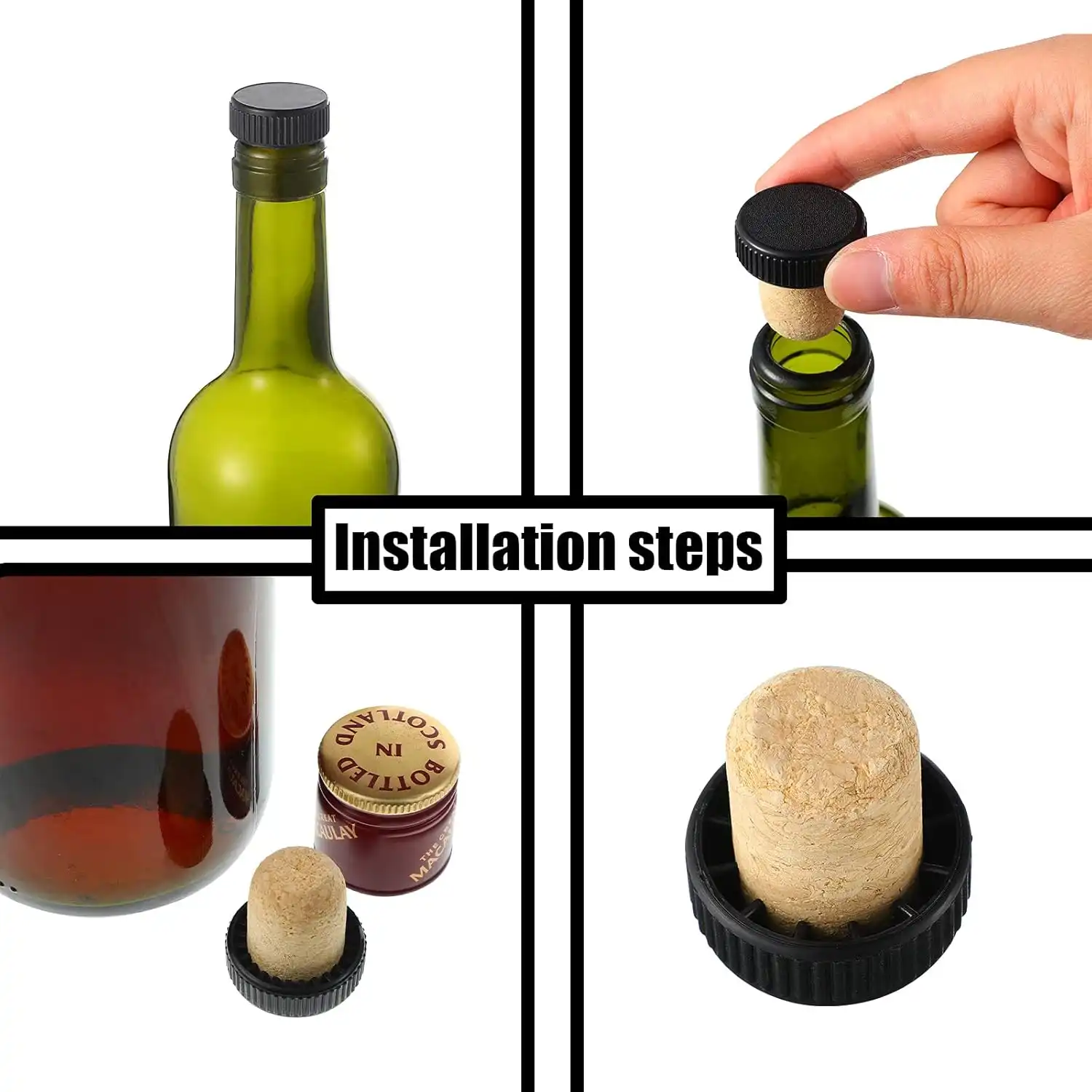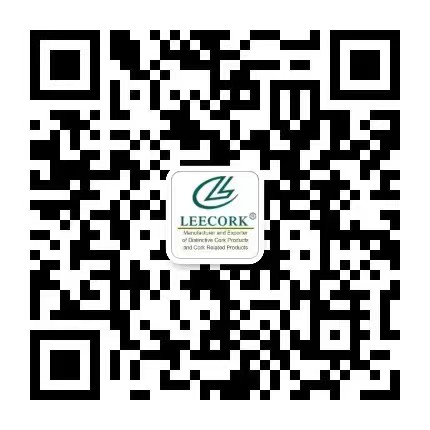How Do Wine Cork Stoppers Elevate Your Tasting Experience?
2025-09-25 11:41:25
Wine cork stoppers have been an integral part of the wine industry for centuries, and for good reason. These natural marvels play a crucial role in elevating your wine tasting experience to new heights. The unique properties of wine cork stoppers contribute significantly to the preservation, aging, and overall quality of wine. By allowing minimal oxygen exchange, cork stoppers help wines develop complexity and character over time. This breathability is essential for the maturation process, enabling the wine to evolve gracefully while maintaining its intended flavor profile. Moreover, the elasticity and sealing capabilities of cork ensure that the wine remains fresh and protected from external contaminants. The ritual of uncorking a bottle also adds a sensory dimension to the tasting experience, creating anticipation and enhancing the overall enjoyment. Whether you're a casual wine enthusiast or a seasoned connoisseur, understanding the impact of wine cork stoppers can deepen your appreciation for the art of winemaking and the nuances of each carefully crafted vintage.

The Science Behind Cork's Breathability
The breathability of cork is a fascinating aspect that sets it apart from other closure options. This natural material possesses a unique cellular structure that allows for controlled oxygen transmission, which is vital for the wine's evolution. The microscopic pores in cork permit minuscule amounts of oxygen to enter the bottle, facilitating the slow oxidation process that softens tannins and develops complex flavors over time.
Oxygen Management: A Delicate Balance
The key to cork's effectiveness lies in its ability to manage oxygen ingress precisely. Too much oxygen can lead to premature aging and spoilage, while too little can result in reductive aromas. Wine cork stoppers strike the perfect balance, allowing just enough oxygen to benefit the wine without compromising its integrity. This delicate equilibrium is particularly crucial for wines intended for long-term aging, where the gradual development of tertiary aromas and flavors is desired.
Humidity Regulation and Microclimate Creation
Beyond oxygen management, cork stoppers also play a role in regulating humidity within the bottle. The natural properties of cork help maintain an ideal microclimate, preventing excessive moisture loss that could lead to cork shrinkage and potential wine seepage. This humidity regulation is essential for preserving the wine's quality and ensuring a consistent aging environment.
Cork vs. Alternatives: Flavor Preservation Showdown
When it comes to preserving the nuanced flavors of wine, cork stoppers have consistently proven their worth against alternative closure methods. The natural composition of cork complements the wine's character without imparting unwanted flavors or aromas, a quality that synthetic alternatives often struggle to match.
Inert Nature and Flavor Neutrality
One of the most significant advantages of wine cork stoppers is their inert nature. Unlike some synthetic closures that may interact with the wine and alter its taste profile, cork remains neutral, allowing the true expression of the wine to shine through. This neutrality is particularly important for delicate wines where even subtle changes can be noticeable.
Long-Term Aging Potential
For wines destined for extended cellaring, cork stoppers provide unparalleled benefits. The slow, controlled oxygen exchange facilitated by cork allows for graceful aging, enabling the wine to develop complexity and depth over time. This long-term potential is often cited as a key reason why many premium wine producers continue to favor cork closures for their finest vintages.
Sensory Experience and Tradition
The use of cork stoppers also contributes to the overall sensory experience of wine consumption. The iconic "pop" of a cork being removed from a bottle has become synonymous with celebration and anticipation. This traditional aspect adds an intangible value to the wine tasting ritual, enhancing the overall enjoyment for many enthusiasts.

Sustainable Sipping: Cork's Eco-Friendly Advantages
In an era of increasing environmental consciousness, the sustainability of wine cork stoppers adds another dimension to their appeal. Cork production is inherently eco-friendly, offering numerous environmental benefits that align with the values of environmentally conscious consumers and winemakers alike.
Renewable and Biodegradable Resource
Cork is harvested from the bark of cork oak trees without harming the tree itself. These trees can live for up to 300 years, with bark harvesting occurring every 9-12 years. This renewable process makes cork a highly sustainable material. Furthermore, cork is biodegradable and recyclable, reducing its environmental impact at the end of its lifecycle.
Carbon Sequestration and Biodiversity
Cork oak forests, known as montados, play a crucial role in carbon sequestration, helping to mitigate climate change. These ecosystems also support a rich biodiversity, providing habitats for numerous plant and animal species, some of which are endangered. By choosing wines sealed with cork stoppers, consumers indirectly support the preservation of these vital ecosystems.
Economic Support for Rural Communities
The cork industry provides significant economic support to rural communities in cork-producing regions, primarily in Mediterranean countries. This economic incentive helps maintain traditional land use practices and prevents the abandonment of cork oak forests, which could otherwise lead to increased fire risk and loss of biodiversity.
Conclusion
Wine cork stoppers are more than just closures; they are guardians of quality, flavor, and tradition in the world of wine. Their unique properties contribute significantly to the preservation and development of wine, ensuring that each bottle reaches its full potential. As we've explored, the breathability of cork, its flavor-preserving qualities, and its eco-friendly nature make it an exceptional choice for winemakers and wine enthusiasts alike.
For those seeking to enhance their wine experience with premium cork products, Xi'an Leecork Co., Ltd. offers a range of high-quality wine cork stoppers and related products. With over two decades of experience serving a global market, Leecork has established itself as a trusted supplier to clients in over 50 countries. Whether you're an individual buyer, a corporate purchasing staff, or an offline store owner, Leecork's commitment to quality and sustainability aligns perfectly with the discerning needs of the wine industry.
Elevate your wine tasting experience and contribute to sustainable practices by choosing cork stoppers for your wines. For more information about our products or to place an order, please contact us at info@leecork.com. Join the ranks of satisfied customers worldwide and discover why Leecork has been a preferred partner in the cork industry since 2002.
References
1. Silva, S. P., et al. (2005). Cork: properties, capabilities and applications. International Materials Reviews, 50(6), 345-365.
2. Karbowiak, T., et al. (2010). Wine oxidation and the role of cork. Critical Reviews in Food Science and Nutrition, 50(1), 20-52.
3. Godden, P., et al. (2001). Wine bottle closures: physical characteristics and effect on composition and sensory properties of a Semillon wine. Australian Journal of Grape and Wine Research, 7(2), 64-105.
4. Lopes, P., et al. (2009). Impact of oxygen dissolved at bottling and transmitted through closures on the composition and sensory properties of a Sauvignon Blanc wine during bottle storage. Journal of Agricultural and Food Chemistry, 57(21), 10261-10270.
5. Amorim, M. C., et al. (2013). Cork oak landscapes, their products and sustainable management. In Mediterranean Oak Woodland Working Landscapes (pp. 295-318). Springer, Dordrecht.
6. Mazzoleni, S., et al. (2019). Wine and cork: A review of its present and future sustainability. Critical Reviews in Plant Sciences, 38(1), 1-23.
You May Like
0Related Industry Knowledge


